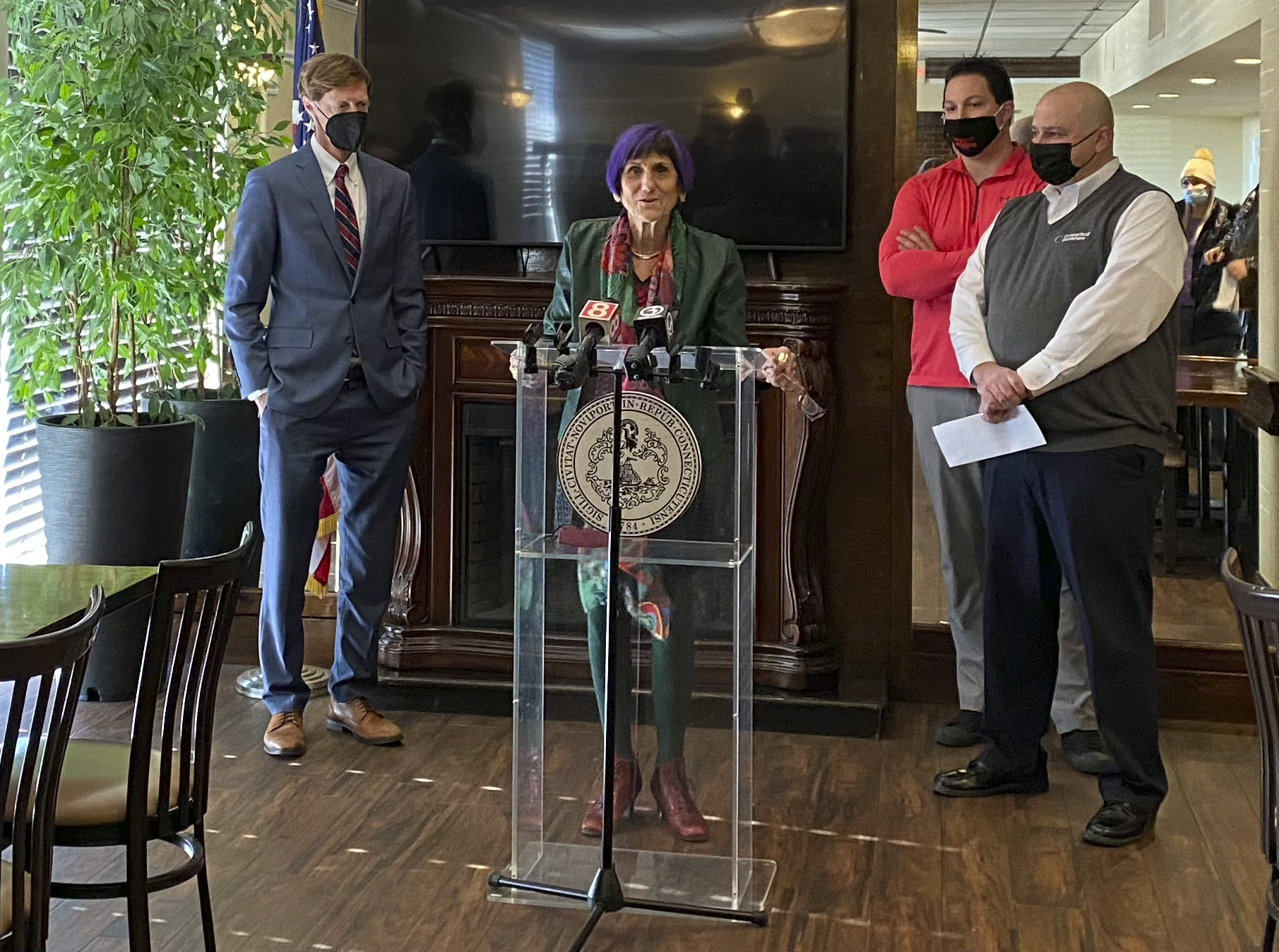DeLauro, Elicker announce federal interventions to bolster supply chains
Increased USDA funding and the America COMPETES Act will strengthen American supply chains and food systems.

Sadie Bograd, Staff Reporter
After nearly two years of pandemic-driven supply chain disruptions, new federal policies may help New Haven businesses and consumers access the resources they need.
Rep. Rosa DeLauro and Mayor Justin Elicker celebrated the America COMPETES Act and the USDA Build Back Better initiative at a press conference at Brazi’s Italian Restaurant on Monday morning. The COMPETES Act increases spending on and protections for American manufacturing with a particular focus on the domestic production of semiconductors. The USDA Build Back Better Initiative — which is unconnected to President Joe Biden’s initiative of the same name — will invest up to $1 billion in food infrastructure, local farming and emergency food assistance.
“Both pieces of legislation have been established to bolster, to safeguard America’s supply chains,” DeLauro said at the press conference.
These policies are especially focused on local and regional businesses, according to DeLauro and Elicker. DeLauro said the Build Back Better initiative will include a series of grants, loans and other financing mechanisms for smaller operators so that it is not only “big agribusinesses that get the advantage.” She added that the COMPETES Act includes provisions to prevent critical manufacturing capabilities from moving overseas.
Running a small business, while always a challenge, has been even harder during the pandemic, DeLauro said. She listed a series of difficulties facing entrepreneurs, including “workers being sick and then production being lost, transportation delays, lost inventory, unpredictable demand.” She also noted the impact that these supply chain disruptions have had on consumers: empty shelves in grocery stores and rising prices at a time when more families are living paycheck to paycheck.
Multiple small business owners confirmed DeLauro’s description of the hardships they have faced since 2020. Although raw materials were still being produced, their distribution networks broke down because of COVID-19.
“We do have an abundance of supplies,” Jay Pallotti, president of Lamberti’s Italian Sausage, said during the press conference. “But getting those to me and to everybody else has been the challenge.”
Lamberti explained that it is not just the obvious inputs, like pork and chicken, that have been harder to access during the pandemic. Nitrile gloves (which is considered to be one of the medical grade gloves in the market), trays, plastic wraps and other packaging materials have all gotten more expensive. Refrigerated trucks are harder to come by; fewer people are unloading trucks and ships. All of those increased costs, he said, result in an increased final price for customers.
Nonprofits that address food insecurity also struggled with supply chain issues. Connecticut Foodshare, a nonprofit that provides food to emergency meal programs and food pantries, used to receive 75 percent of its food donations from grocery stores, according to President Jason Jakubowski. In early March, that number shrank to zero overnight.
“They had a hard enough time keeping food on their shelves,” Jakubowski said during the conference. “Even to this day, there’s shortages in a lot of different products. So with that bottom falling out on us, we ended up having to go out and purchase food.”
Although the nonprofit received more donations during the pandemic, it was also spending more than ever before to keep its partners supplied.
Build Back Better will spend up to $600 million on emergency food assistance programs and food banks. It will also invest in food production, processing, distribution and markets in order to prevent future supply bottlenecks and transport problems.
Elicker said that these investments are not only beneficial for small businesses — they are also crucial to the national economy.
These programs “focus on investing in smaller companies, because the more small companies that are resilient and flexible and have the training and technology that they need, the more resilient our overall economy is,” Elicker said. “If we rely on large global conglomerates, we are less flexible, less adept.”
The COMPETES Act has passed the Senate and the House in different versions which must be reconciled before it is enacted into law. DeLauro told the News that more specific information about USDA investments will be announced in the coming weeks, but that she does not know how much money New Haven specifically will receive.
17 percent of New Haven adults have used a food bank since February 2020, according to the DataHaven Community Wellbeing Survey.







